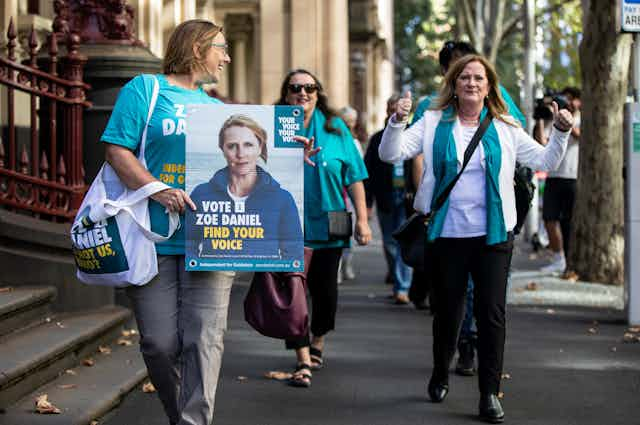When will Prime Minister Scott Morrison call the election? And could this be the long-awaited campaign when women take the driver’s seat?
In the second episode of our new election podcast, Below the Line, our expert panel delve into the High Court’s involvement in the election’s timing and its likely impact on the Coalition vote. After we finished recording, the High Court confirmed the dismissal of the New South Wales Liberals’ challenge to Morrison’s hand-picked candidates.
Then, picking up on the PM’s claim this week that he overrode the local preselection process to “get more good women into parliament”, we take a deep dive into what role gender will play in the campaign.
Jointly hosting the episode are award-winning broadcaster and Vice Chancellor’s Fellow at the University of Melbourne, Jon Faine, and University of Sydney’s Professor Simon Jackman. Joining them to talk about gender and politics is an all-female line-up of political scientists including regular panellists Associate Professor Andrea Carson from La Trobe University, Sydney University’s Professor Anika Gauja and special guest Dr Jill Sheppard, a gender expert from the Australian National University.
They look at why Australia is ranked just 50th in the world for female political representation, a drastic fall from 1999 when Australia was ranked 15th. After the March4Justice movement and with increasing numbers of female independent candidates campaigning, could we turn things around in 2022? Don’t hold your breathe, said Jill Sheppard, who reminded us that voters might care more about petrol prices than gender parity.
Below the Line is brought to you by The Conversation and La Trobe University twice weekly until polling day. It is produced by Courtney Carthy and Benjamin Clark.
Image credit: Diego Fedele/AAP

